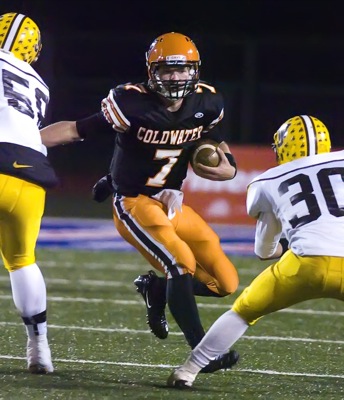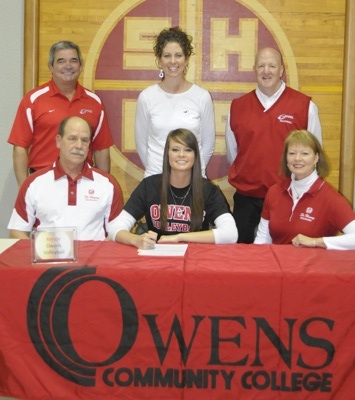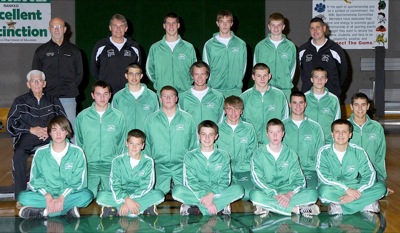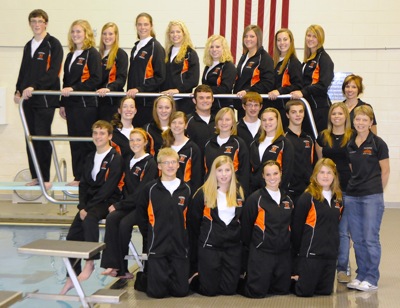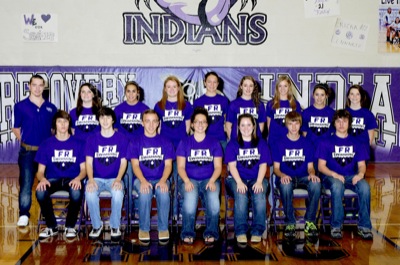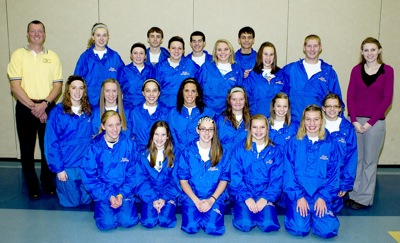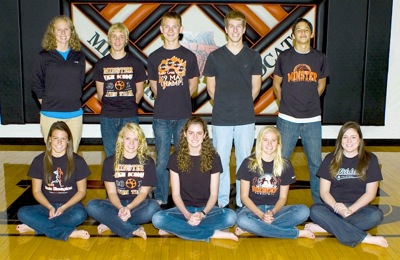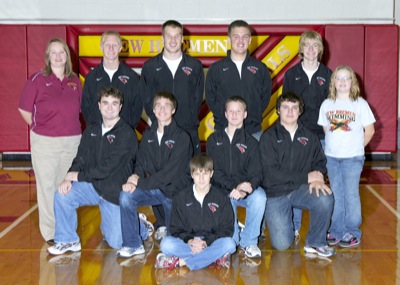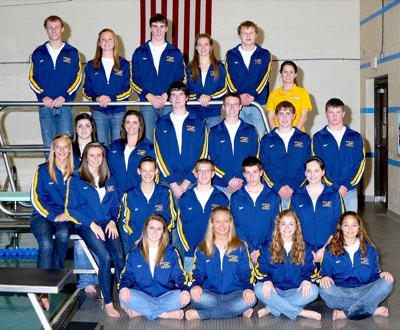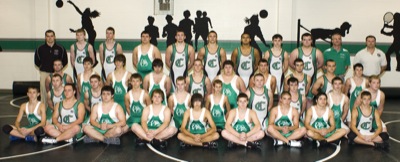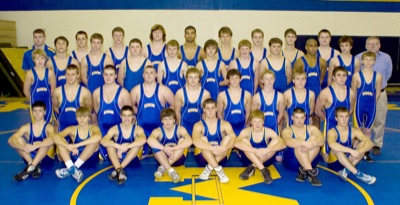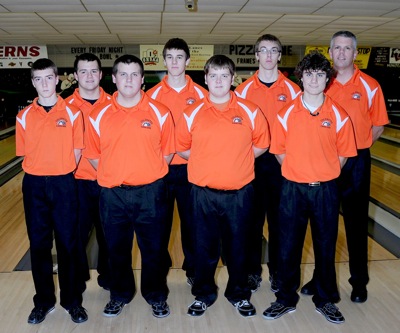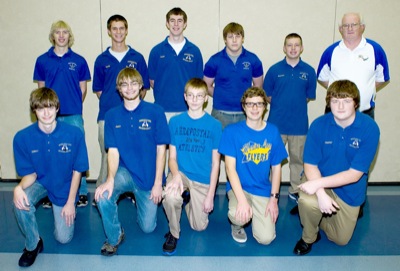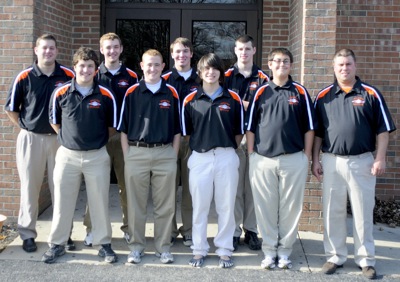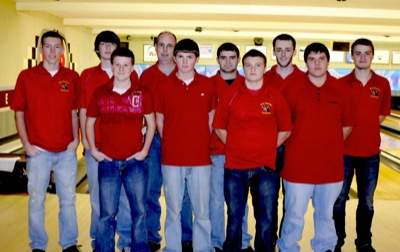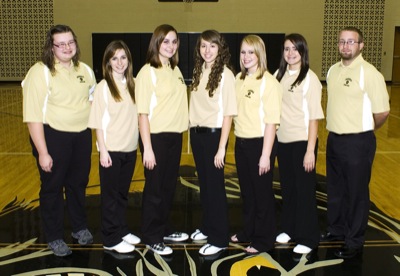Tuesday, November 29th, 2011
Civics project uncovers Civil War past
Celina student unites local businessman with relative's story
By Amy Kronenberger
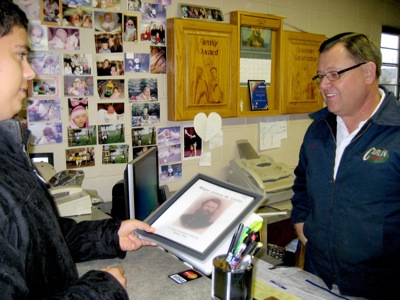
Photo by Amy Kronenberger/The Daily Standard
Celina sophomore Isaac Elston presents his report on Civil War veteran Maj. James Carlin to Richard Carlin, his great-grandson. Elston researched Carlin for his final project in civics class.
CELINA - A local resident can share the story of his great-grandfather, a Civil War veteran, with future generations thanks to research done by a Celina High School student.
Sophomore Isaac Elston chose to research Civil War veteran Maj. James Carlin for his final project in civics class. He discovered the major was the great-grandfather of Richard Carlin, owner of Carlin Automotive of Celina, and passed the report onto the family.
In his research, Elston learned James Carlin joined the 17th Ohio Volunteer Infantry in April 1861 and served just over three months as a private. Six months later, Carlin, 29, mustered his own volunteer company from Mercer County and joined the 71st OVI for three years. At this time, he was promoted to captain.
Carlin kept a diary during his first enlistment, and some of it survives today at the Troy Historical Society. One entry dated July 2, 1861, boasted the triumph of his company taking control of a West Virginia town.
"We pushed bravely on and arrived at Glenville about daylight without the transpiration of anything worth note except the capture of a couple of secessionists; we found the nests, but the birds had flown," he wrote. "The cowardly rebels, though occupying a strong position had given it up to us without a struggle.
"We took possession of the courthouse in the morning ... and before the sundowned upon us I had with my own hands nailed the Stars and Stripes upon the cupola of the courthouse."
Two days later, Carlin described the Fourth of July celebration.
"The glorious 4th seems as bright as if no civil strife distracted the country," he wrote. "We paraded at 4 p.m., after which we listened to the reading of the Declaration of Independence and ... some ladies sang the Star Spangled Banner with much spirit. So passed the Fourth of July in 1861, in a place a few days ago (was) fully in the possession of the acknowledged foes of our free intentions."
According to Elston's report, Carlin was promoted to major during his second enlistment. He was captured by Confederates in Alabama in October 1864 and was held a prisoner of war at Andersonville Prison.
At war's end, April 1865, Carlin was released from prison and began his journey home on the steamship SS Sultana. On April 27, three of the four boilers on the Sultana exploded and 1,800 of the 2,400 passengers were killed.
Elston said Carlin was listed as a survivor, but he never returned home.
"He survived the war, only to die on the trip home," he said.
Carlin's headstone is in North Grove Cemetery in Celina, beside his wife. His body likely was left in the Mississippi River, Elston said.
According to an article in the Journal of Forensic Sciences, the explosion of the SS Sultana was "the greatest maritime disaster in United States history." However, it was downplayed because it occurred shortly after Abraham Lincoln's assassination.
Elston presented his report to Richard Carlin last week.
Richard Carlin said he appreciated the gift and the work Elston put into it.
"My mother is going to be so tickled when she sees this," he said, adding they have been working on the family's genealogy. "I can't wait to go home and read this."

